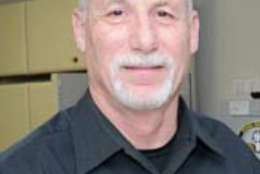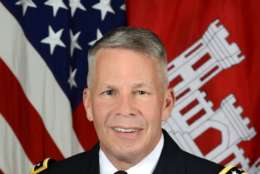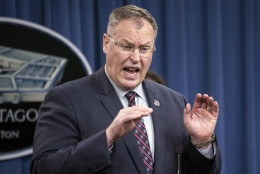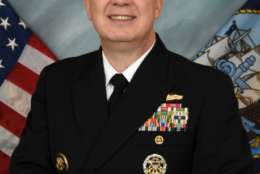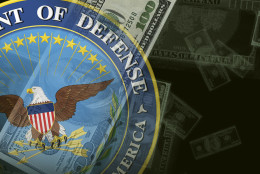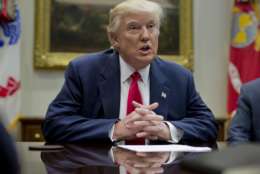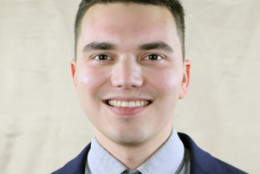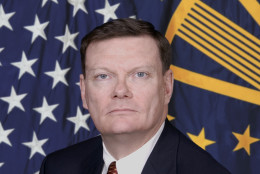Defense
-
Top military service officials President Trump's federal hiring freeze is causing problems for those in the military.
March 08, 2017 -
Technology installations could help military bases, but is the funding there?
March 07, 2017 -
For many years, researchers at the Army Institute of Surgical Research have concentrated on what they call compensatory reserve. That is, how much blood loss can a person sustain and the body still compensate. Dr. Victor Convertino, senior scientist at the Institute, tells Federal Drive with Tom Temin the Army, in concert with the FDA, has developed a new device that can help prevent battlefield deaths.
March 07, 2017 -
Lt. Gen. Todd Semonite is on a mission to drive the U.S. Corps of Engineers toward more collaboration and opportunities by taking care of national security, energizing the economy, and reducing disaster risk.
March 07, 2017 -
The Pentagon met the letter of the law by turning in a report to Congress on how it plans to implement one of its largest organizational changes in decades.
March 07, 2017 -
The Defense Science Board's latest study on the state of cyber defense in the U.S. reached some worrying conclusions, both for civil infrastructure and for military capability.
March 07, 2017 -
A new bill from House appropriators adds extra oversight to DoD's electronic health records program, which is just being released on select bases.
March 06, 2017 -
Military planners often look out three or five or 10 years in advance to predict requirements. Now a new institute at the Naval War College is looking at the long-range warfare needs of the U.S. Rear Adm. Jeffrey Harley, president of the Naval War College, fills in Federal Drive with Tom Temin on the Institute for Future Warfare studies.
March 06, 2017 -
The Army put out a request for information (RFI) looking for vendors who could provide services to find, monitor and remove impostor social media accounts.
March 06, 2017 -
The Defense Department mandated the use of a services acquisition workshop in 2012 for all procurements worth more than $1 billion. The success of the effort is leading other agencies to use it.
March 06, 2017 -
Significant cuts to EPA's state programs and workforce have sent agency executives and employees' unions scrambling to get a better understanding of what direction the Trump administration wants to take the department.
March 06, 2017 -
What does it take to be a leader in the intelligence community? Federal News Radio’s Scott Maucione spoke with 2017 Intelligence and National Security Alliance Achievement Award Winner Janna Scott-Tarman on Federal Drive with Tom Temin. Scott-Tarman is the Deputy Division Chief for Counterintelligence Analysis at the Defense Intelligence Agency.
March 03, 2017 -
Discharge Review Boards rarely grant veterans personal testimony and are having trouble providing video conferences.
March 02, 2017 -
Terry Halvorsen left DoD at the end of February after spending the last two-plus years as its chief information officer.
March 02, 2017 -
The Defense Department started deployment of its new electronic health record — a major milestone last week in the $4.3 billion program known as MHS Genesis.
March 02, 2017



